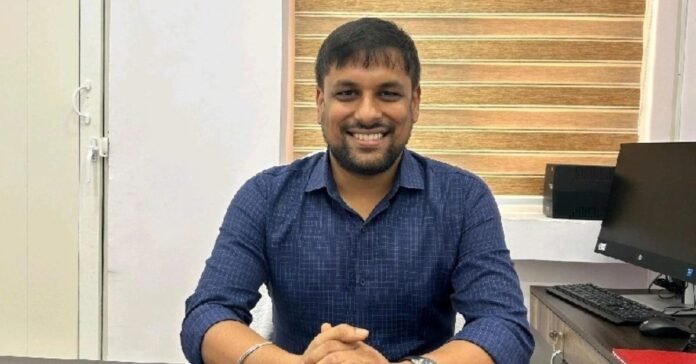
In 2018, Saurabh Bhawania achieved a milestone that many aspire to but only a few attain—he cracked the UPSC Civil Services Examination with an All India Rank (AIR) of 113. His journey, marked by resilience and determination, is a testament to the power of persistence. At 32 years old, he secured an exceptional score of 201 in the interview round, the third-highest that year.
Overcoming Challenges and Balancing Responsibilities
Success did not come easy. Saurabh’s first attempt in 2017 ended at the Mains stage, but instead of giving up, he embraced the setback as motivation. He returned stronger in his second attempt, balancing rigorous UPSC preparation with his full-time job at the Reserve Bank of India (RBI) and the responsibilities of impending parenthood.
“My career in banking was fulfilling, but my heart yearned for work that made a difference,” he reflects. Inspired by his father’s admiration for civil servants and a District Collector in Dumka, Jharkhand, who actively engaged with the local community, Saurabh nurtured the dream of joining the Indian Administrative Service (IAS).
Just two months into his UPSC preparation, he and his wife Parul received life-changing news—they were expecting a child. Instead of seeing this as a challenge, Saurabh transformed it into his greatest motivation. With relentless dedication, he finally cleared the examination in his second attempt and realized his dream of becoming an IAS officer.
With his wealth of experience, Saurabh shares crucial insights for aspirants gearing up for the UPSC Prelims in May 2025.
Saurabh Bhawania’s Ultimate UPSC Prelims Preparation Tips
1. Quality Over Quantity
“There is no fixed number of study hours required to crack UPSC,” Saurabh emphasizes. A well-structured strategy matters more than mindlessly logging long hours. “While dedicating more hours helps, it’s a misconception that fewer hours won’t yield success. A focused and productive schedule can work just as well.”
For working professionals, he suggests:
- Weekends: Study 8-9 hours per day.
- Weekdays: Allocate 5-6 hours while balancing work commitments.
- Holidays: Use them strategically for intensive revision.
2. Mastering the Art of Elimination
The UPSC Prelims consists of two papers:
- General Studies (Paper I) – Determines qualification for Mains.
- CSAT (Paper II) – A qualifying paper requiring a minimum of 33% marks.
Since Prelims follows a multiple-choice format with negative marking, mastering the elimination technique is crucial. “You may not know the answer to every question, so develop the skill of eliminating incorrect options,” Saurabh advises.
Reverse Engineering Approach:
- If two options seem incorrect, eliminate them and make an educated guess between the remaining choices.
- Regularly practice elimination techniques to improve accuracy.
Daily Routine: Spend 30-35 minutes solving 25-30 MCQs and analyzing explanations rigorously to understand the rationale behind each answer.
3. Prioritizing Mock Tests
Even if 90% of the syllabus is covered three months before Prelims, shift your focus to test paper practice. Saurabh advises:
- Take subject-wise and full-length mock tests to build speed and reduce errors.
- Aim to solve 5,000+ questions before the exam.
- Reviewing previous years’ question papers helps recognize recurring patterns.
4. Don’t Underestimate CSAT
While General Studies determines the Prelims cut-off, CSAT is equally important. Many aspirants overlook CSAT, assuming it only requires 33% to pass, but its difficulty level has increased over the years.
CSAT Preparation Strategy:
- Even if confident, solve past CSAT papers to assess proficiency.
- Self-test regularly: If scoring 70-80 marks, identify weak areas and refine skills.
- Strengthen reading comprehension, synonyms, and quantitative aptitude.
5. Smart Leave Planning for Working Aspirants
While working at RBI, Saurabh strategically planned leaves for UPSC:
- Prelims: Took 10 days off for focused preparation.
- Mains: Reserved three weeks for intensive study.
- Interview: Allocated time based on his personal study timeline.
“If you’re employed, use weekends, holidays, and study breaks wisely to maximize preparation,” he advises.
Final Words of Motivation
Saurabh Bhawania’s story is a powerful reminder that success in UPSC is not about overnight miracles but consistent effort and smart strategy. Whether managing a full-time job, parenthood, or other responsibilities, the key is to stay focused, practice relentlessly, and never lose sight of the goal.
To all UPSC aspirants gearing up for Prelims 2025, believe in yourself, trust your preparation, and keep moving forward.
Stay determined, and success will follow!
Wishing you the best for the upcoming UPSC Prelims!

